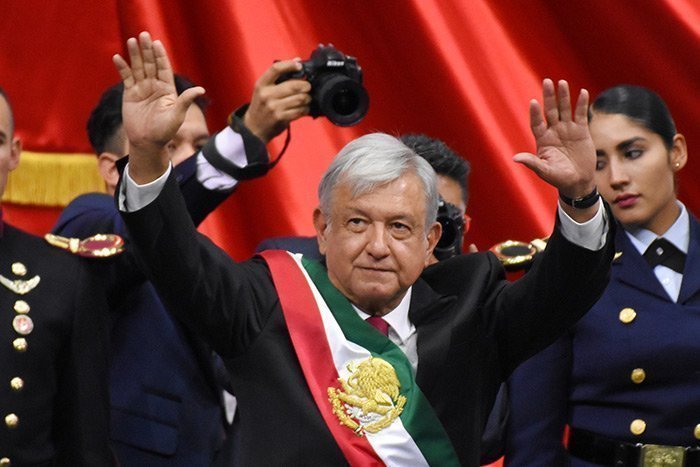This piece was originally published in the May/June 2019 issue of electroindustry.

Gustavo Dominguez, Director, Latin America, NEMA and Craig Updyke, Director, Trade and Commercial Affairs, NEMA
Even bbefore taking office on December 1, 2018, Mexican President Andrés Manuel López Obrador, known as AMLO, announced the cancellation of the $13 billion construction of a new airport for the capital city. Citing allegations of corruption, the president decreed improvements would be made instead to existing facilities, including a military airfield, to reduce traffic congestion. The president’s goals of combating corruption, creating jobs, and boosting national competitiveness are evident in two additional public works projects.
López Obrador is moving ahead with a $6.5 billion, 900-mile railroad project in the Yucatan peninsula to link towns, cities, and tourist attractions. At the head of the project is the National Fund for Tourism Development (FONATUR), a Mexican agency responsible for tourism projects, which has named Canadian company Bombardier, the China Railway Construction Corporation, and a Spanish firm, Construcciones y Auxiliar de Ferrocarriles (CAF), as possible bidders. The agency plans to use existing tracks and build new ones using existing rights-of-way along highways or electrical transmission lines.
On March 18, Energy Minister Rocio Nahle announced four parties were invited to bid for the construction of an $8 billion new refinery in Dos Bocas, Tabasco, for the state oil company known as Pemex. Fifty percent of the refinery must be “national content.” At the announcement, President López Obrador added that his government intends to set aside funds to modernize Pemex’s existing six refineries and to start oil production on twenty new sites. López Obrador has set a goal of national self-sufficiency in gasoline; at present, 70 percent of domestic demand is met by imports, most of which come from the U.S.
Mexico is the top export destination for U.S. electrical equipment within NEMA scope. NEMA’s field office in Mexico City supports 24 product sections on technical Standards and market development projects. ei